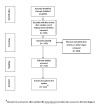A brief review on features of falciparum malaria during pregnancy
- PMID: 29456824
- PMCID: PMC5812306
- DOI: 10.4081/jphia.2017.668
A brief review on features of falciparum malaria during pregnancy
Abstract
Malaria in pregnancy is a serious public health problem in tropical areas. Frequently, the placenta is infected by accumulation of Plasmodium falciparum-infected erythrocytes in the intervillous space. Falciparum malaria acts during pregnancy by a range of mechanisms, and chronic or repeated infection and co-infections have insidious effects. The susceptibility of pregnant women to malaria is due to both immunological and humoral changes. Until a malaria vaccine becomes available, the deleterious effects of malaria in pregnancy can be avoided by protection against infection and prompt treatment with safe, effective antimalarial agents; however, concurrent infections such as with HIV and helminths during pregnancy are jeopardizing malaria control in sub-Saharan Africa.
Keywords: Malaria; Plasmodium falciparum; pregnancy.
Conflict of interest statement
Conflict of interests: the authors have no conflict of interests.
Figures
References
-
- WHO: World Malaria Report 2016. Geneva: World Health Organization; 2016.
-
- White NJ, Pukrittayakamee S, Hien TT, Faiz MA, Mokuolu OA, Dondorp AM: Malaria. Lancet 2014;383:723-35. - PubMed
-
- Desai M, ter Kuile FO, Nosten F, et al. Epidemiology and burden of malaria in pregnancy. Lancet Infect Dis 2007;7: 93-104. - PubMed
LinkOut - more resources
Full Text Sources
Other Literature Sources

